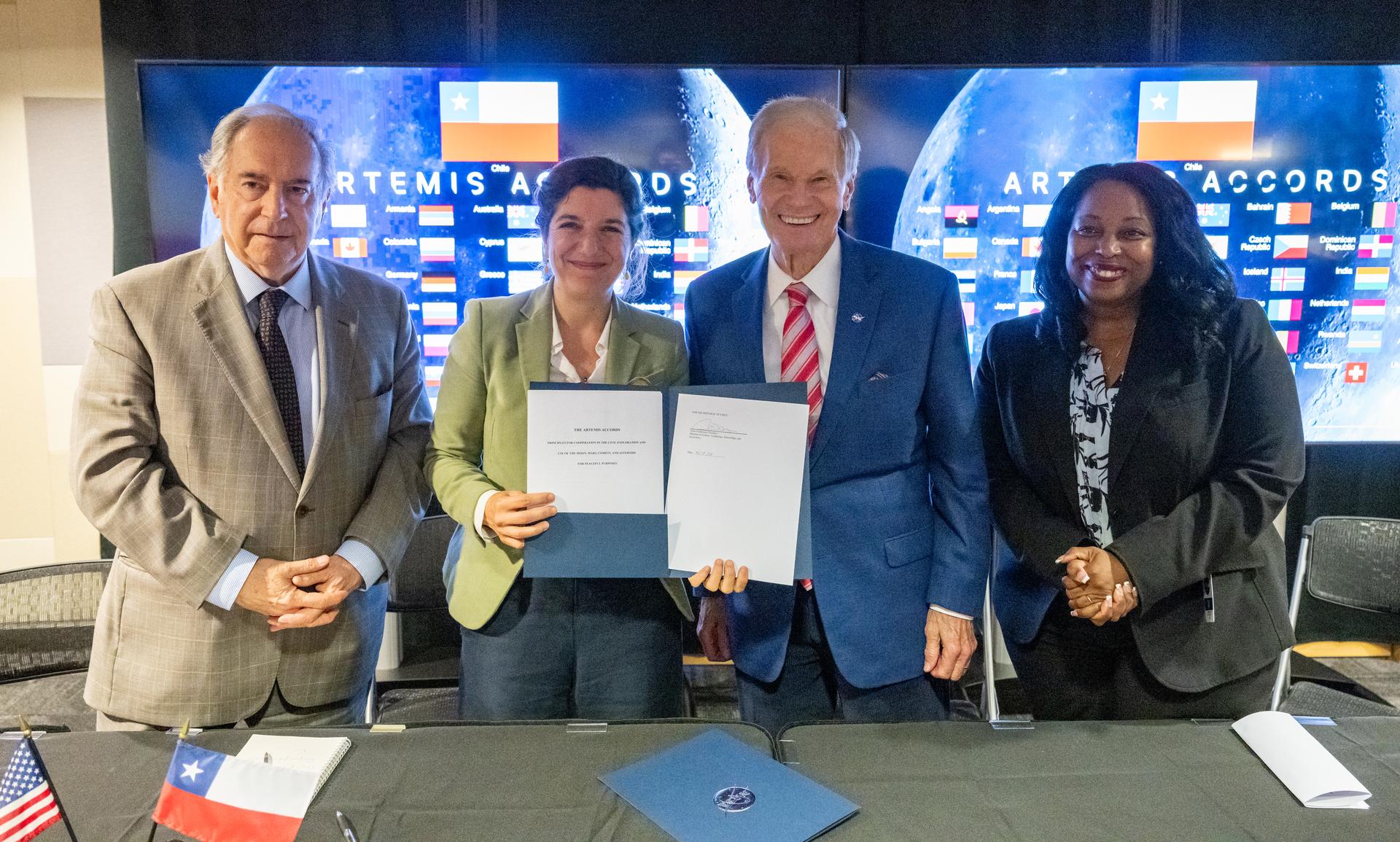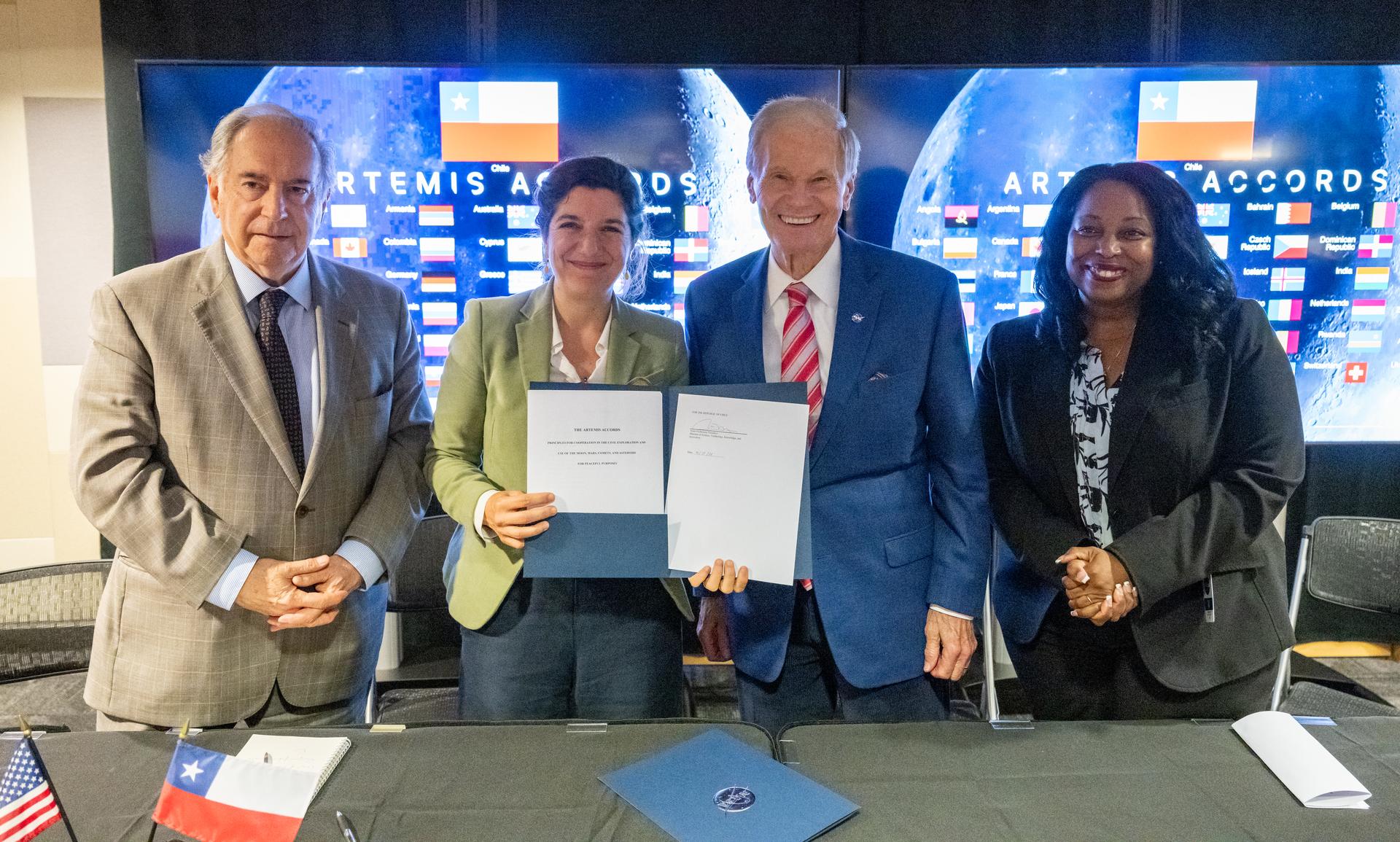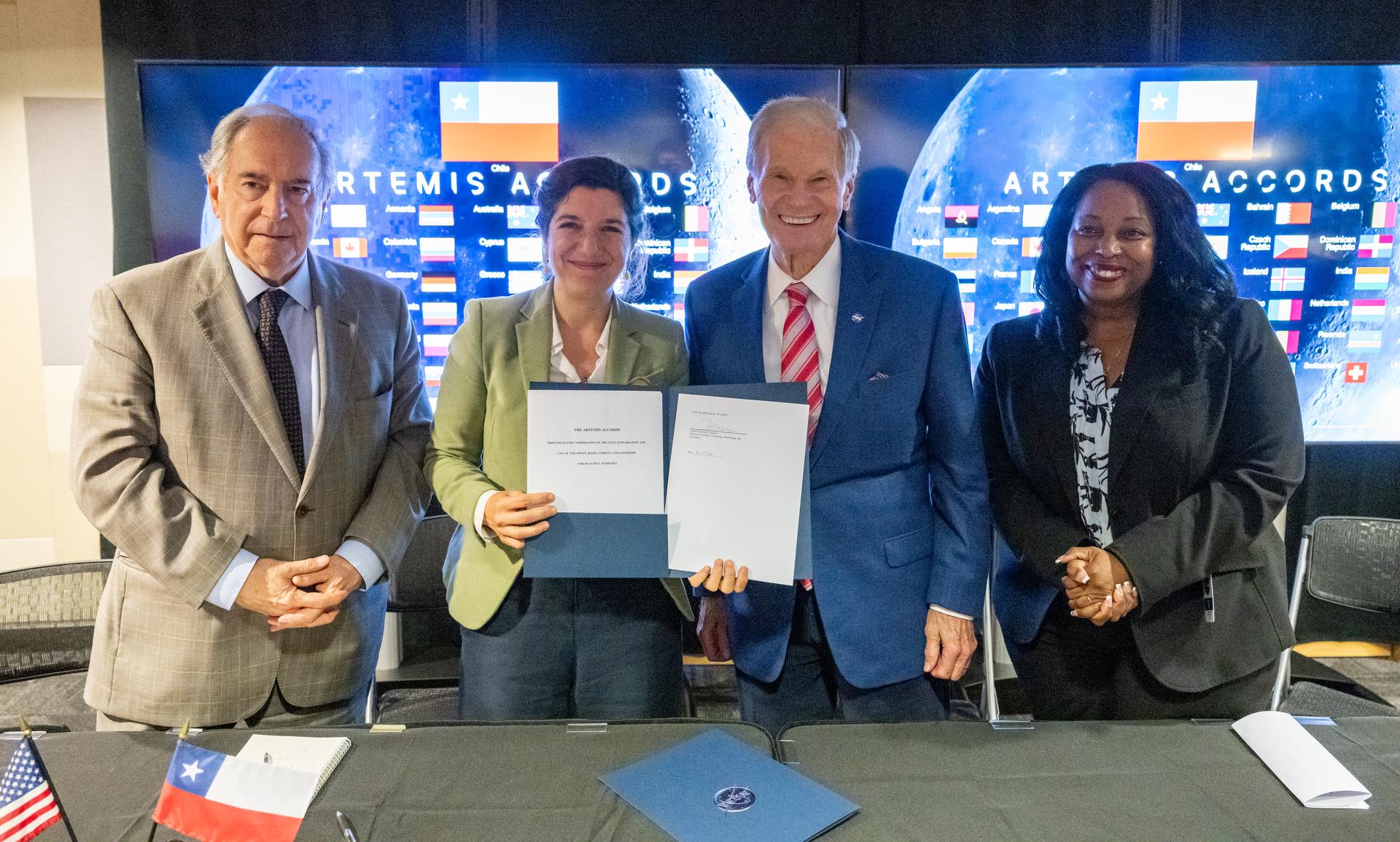 From left to right, Chilean Ambassador to the United States Juan Gabriel Valdés, Chilean Minister of Science, Technology, Knowledge, and Innovation Aisén Etcheverry Escudero, NASA Administrator Bill Nelson, and United States Department of State Acting Assistant Secretary in the Bureau of Oceans and International Environmental and Scientific Affairs Jennifer R. Littlejohn pose for a photo after the signing of the Artemis Accords, Friday, Oct. 25, 2024, at the Mary W. Jackson NASA Headquarters building in Washington. The Republic of Chile is the 47th country to sign the Artemis Accords, which establish a practical set of principles to guide space exploration cooperation among nations participating in NASA’s Artemis program. NASA/Keegan Barber Chile signed the Artemis Accords Friday during a ceremony hosted by NASA Administrator Bill Nelson at the agency’s headquarters in Washington, becoming the 47th nation and the seventh South American country to commit to the responsible exploration of space for all humanity.
From left to right, Chilean Ambassador to the United States Juan Gabriel Valdés, Chilean Minister of Science, Technology, Knowledge, and Innovation Aisén Etcheverry Escudero, NASA Administrator Bill Nelson, and United States Department of State Acting Assistant Secretary in the Bureau of Oceans and International Environmental and Scientific Affairs Jennifer R. Littlejohn pose for a photo after the signing of the Artemis Accords, Friday, Oct. 25, 2024, at the Mary W. Jackson NASA Headquarters building in Washington. The Republic of Chile is the 47th country to sign the Artemis Accords, which establish a practical set of principles to guide space exploration cooperation among nations participating in NASA’s Artemis program. NASA/Keegan Barber Chile signed the Artemis Accords Friday during a ceremony hosted by NASA Administrator Bill Nelson at the agency’s headquarters in Washington, becoming the 47th nation and the seventh South American country to commit to the responsible exploration of space for all humanity.
“Today we welcome Chile’s signing of the Artemis Accords and its commitment to the shared values of all the signatories for the exploration of space,” said Nelson. “The United States has long studied the stars from Chile’s great Atacama Desert. Now we will go to the stars together, safely, and responsibly, and create new opportunities for international cooperation and the Artemis Generation.”
Aisén Etcheverry, minister of science, technology, knowledge and innovation, signed the Artemis Accords on behalf of Chile. Jennifer Littlejohn, acting assistant secretary, Bureau of Oceans and International Environmental and Scientific Affairs, U.S. Department of State, and Juan Gabriel Valdés, ambassador of Chile to the United States, also participated in the event.
“The signing marks a significant milestone for Chile, particularly as our government is committed to advancing technological development as a key pillar of our national strategy,” said Etcheverry. “Chile has the opportunity to engage in the design and development of world-leading scientific and technological projects. Moreover, this collaboration allows us to contribute to areas of scientific excellence where Chile has distinguished expertise, such as astrobiology, geology, and mineralogy, all of which are critical for the exploration and colonization of space.”
Earlier in the day, Nelson also hosted the Dominican Republic at NASA Headquarters to recognize the country’s signing of the Artemis Accords Oct. 4. Sonia Guzmán, ambassador of the Dominican Republic to the United States, delivered the signed Artemis Accords to the NASA administrator. Mike Overby, acting deputy assistant secretary, Bureau of Oceans and International Environmental and Scientific Affairs, U.S. Department of State, and other NASA officials attended the event.
In 2020, the United States, led by NASA and the U.S. Department of State, and seven other initial signatory nations established the Artemis Accords, identifying an early set of principles promoting the beneficial use of space for humanity. The Artemis Accords are grounded in the Outer Space Treaty and other agreements including the Registration Convention, the Rescue and Return Agreement, as well as best practices and norms of responsible behavior that NASA and its partners have supported, including the public release of scientific data.
The commitments of the Artemis Accords and efforts by the signatories to advance implementation of these principles support the safe and sustainable exploration of space. More countries are expected to sign in the coming weeks and months.
Learn more about the Artemis Accords at:
https://www.nasa.gov/artemis-accords
-end-
Meira Bernstein / Elizabeth Shaw
Headquarters, Washington
202-358-1600
meira.b.bernstein@nasa.gov / elizabeth.a.shaw@nasa.gov


